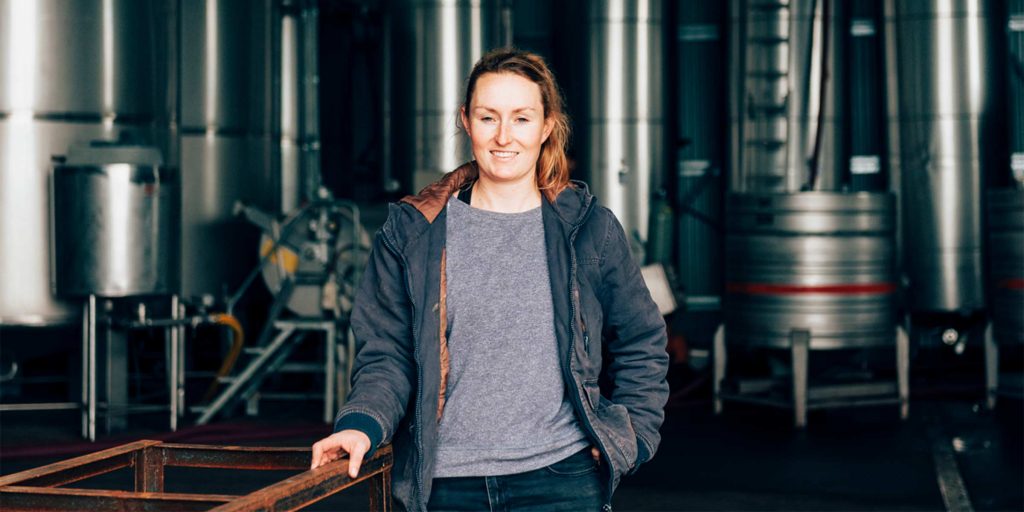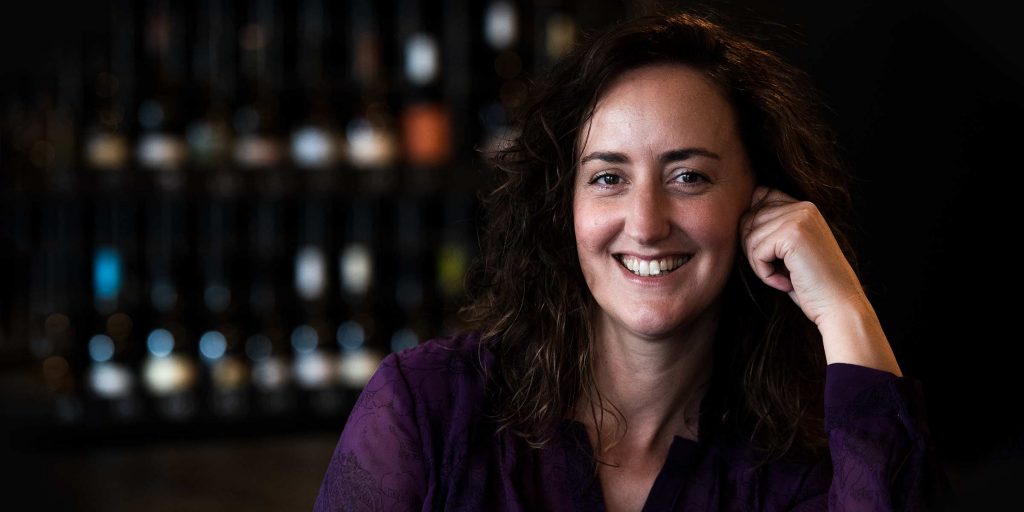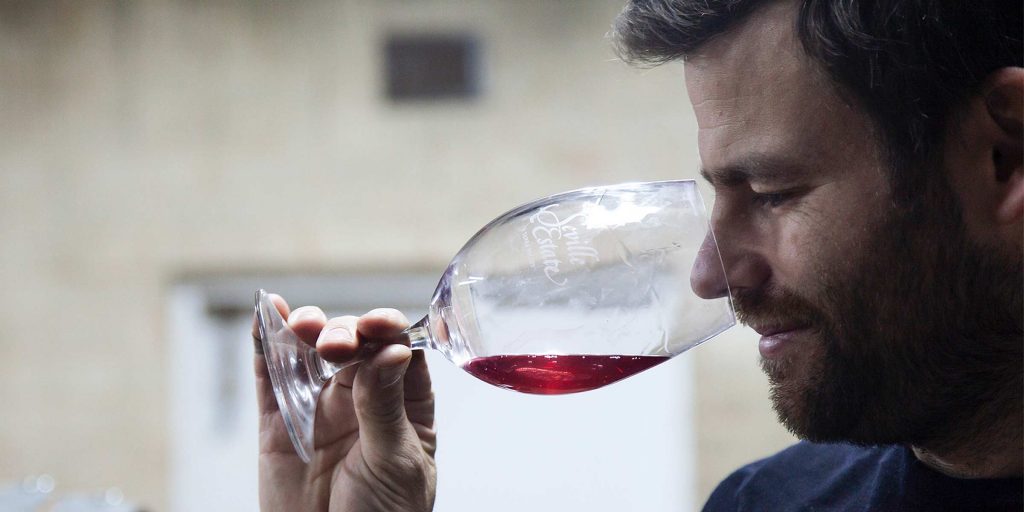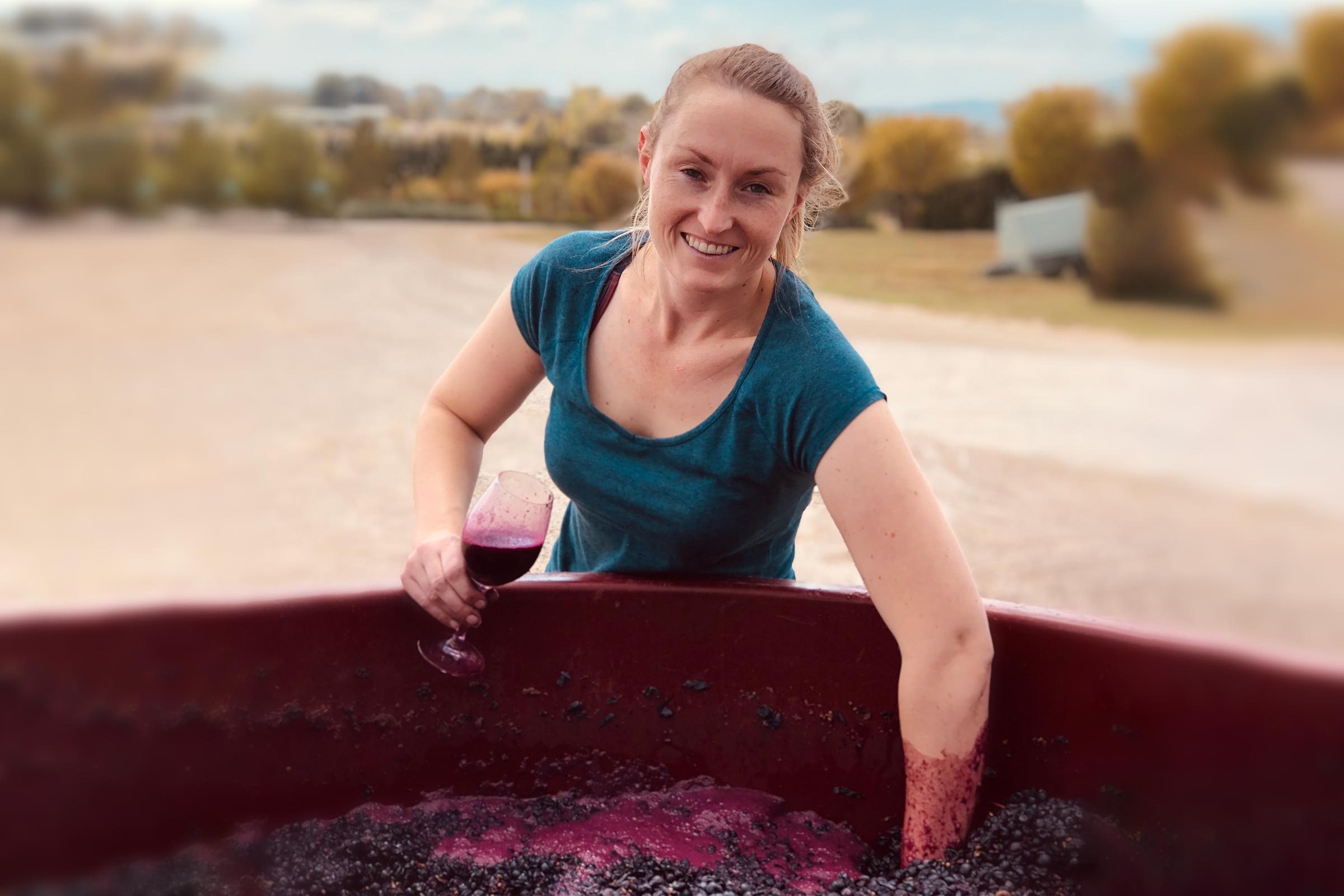There’s a new vintage of wine industry leaders set to take Australia’s grape and wine industry into the future. Each year Wine Australia prepares emerging leaders for the challenges facing the sector in the hope that they’ll bring innovative change to the table. Titled Future Leaders, the professional and personal development program runs over six months.
We talk to three alumni of the program – Keira O’Brien, Nadja Wallington and Dylan McMahon. They’re promising movers and shakers – who all have studied wine science at Charles Sturt University.
But first, what is the Future Leaders program?
Wine Australia’s Jo Hargreaves – a senior research and design program manager – fills us in.
“This program came about because of Wine Australia’s interest in supporting people in the sector and recognising the importance of emerging leaders. We wanted to harness their leadership potential and provide them with an opportunity to develop.
“It’s quite competitive to get into Future Leaders and it’s a fairly intensive program. Our participants are exposed to concepts, challenges and information that will take them on a professional and personal journey that can be life changing.
“We’re looking for people with a sense of drive and enthusiasm. Those mid to early career professionals who are already demonstrating innovative behaviour, volunteering beyond their work roles, or giving back to their communities through regional associations, boards or committees. Those looking for the chance to take their career to the next step.”
Let’s meet our wine leaders.
Nadja Wallington

Nadja headed to Charles Sturt University straight from high school to study a bachelor’s that combined wine science and viticulture. She was also a trainee winemaker at Charles Sturt’s commercial winery. The combination of theory and practice proved a valuable foundation from which to grow her professional life.
“My time at Charles Sturt gave me the platform for my career. Being a trainee winemaker was a great program to be a part of because it gave me all the practical skills I needed to be a working winemaker.”
Now working at Philip Shaw Wines in Orange, Nadja hopes to make her mark on the industry as a wine leader. She is dedicated to promoting sustainability and wants to help this emerging wine region find its voice. The Future Leaders program was an opportunity to build skills, knowledge and networks to do just that.
“I want to contribute to this industry because I come from the land and love that this is our foundation. I also have a huge sense of responsibility to do the right thing and farm the land in a way that assures it will be here to benefit many generations to come. It will be increasingly necessary to think creatively about what it means to be sustainable. That means looking at becoming more sustainable as a whole business and then as a sector.
“I’ve seen the benefits of the Future Leaders program and I’m a believer that if you want to change something – get involved. Don’t sit back and wait for others to do it. I want to be proactive in helping our industry move forward. I want to help determine which direction we take.”
It’s a beautiful blend
Most people would think working in the wine industry would be a pretty good gig. It’s appears they’re right! Nadja will tell you there’s a lot to love.
“It blends art, science and agriculture. I’ve worked overseas for three years in France (Bordeaux and Cote Roti), South Africa (Stellenbosch) and California (Russian River). The lifestyle that comes with this work is great. You meet and work with interesting, dynamic people. Collaboration and innovation is certainly a strong part of our industry.
“And I just love that I’m not stuck behind a desk.”
A change is coming for wine industry leaders
This is a dynamic industry and Nadja sees some exciting changes on the horizon.
“We’re already starting to see loads more ladies as wine industry leaders! There’s a lot of effort from some amazing women to really challenge the status quo and get more females into leading industry roles.
“Another necessary shift will be toward more sustainable practices in viticulture and winemaking. It will happen both as a reflection of consumer preferences, and also from businesses’ point-of-view. So we’re in this for the long haul. Wine is a long-term investment. We need to focus on the future and be mindful of how we can best secure that for subsequent generations.
“Social license is also a key issue. Working in the alcohol business it’s important that we act responsibly as an industry – promoting responsible consumption of alcohol.”
Keira O’Brien

For Keira O’Brien, being involved in the wine industry was more of a hobby than a career. Established in commercial property, she had a “side hustle” of teaching wine education to consumers.
“I got to a crossroads in my life and realised I wasn’t enjoying what I was doing in my work. I had some friends unexpectedly die and, as a result, that caused me to step back and reflect. How was I spending my time?
“So, I thought I’d try a few things and one of those was to help out during vintage at a winery. I had a bit of an idea that I wanted to be a winemaker and had got to know a few well-known Aussie winemakers through my teaching. I thought ‘their job looks pretty cool’. So off I went to do a vintage.”
Working a vintage means helping out at a winery and vineyard during harvest to process the grapes and begin winemaking.
Keira had found her calling. So while working part-time in a range of roles in the industry, she decided to begin her Bachelor of Wine Science with Charles Sturt University. Now in her fourth year of the degree, she is also a technical winemaker at Tasmanian Vintners.
“If I was going to get a job as a winemaker, I needed to do the Bachelor of Wine Science. Everyone at Charles Sturt was very helpful. Because I didn’t have a previous tertiary qualification they took into consideration all my professional experience.”
Shaping wine industry leaders
Wine Australia’s Future Leaders program appealed to Keira for three important reasons.
“Firstly, this program helped round out my leadership capabilities. Secondly, it gave me a different perspective on the challenges that face the wine industry and wine industry leaders. And, thirdly, I really wanted to go through this national program with some industry peers. I saw that as a big benefit. There are people involved from many different parts of the industry: export, viticulture, sustainability and environmental management. They also have all different roles and diverse experiences.”
Of particular interest to her is the problem of smoke taint from bushfires impacting wine and how the industry can build capabilities for viticulture through education, workplace training and support.
“Looking through the lens of climate change, parts of our country are getting drier and drier. We’re also experiencing high incidents of extreme weather events. All of that means bushfires in Australia are going to continue to be an issue. If there’s smoke around at the time the grapes are ripening, then smoke in the atmosphere can actually get under the skin of a grape berry, because it’s respiring – breathing. Because if the smoke particles are in the air, they can end up in the grape. Those particles get down to sugars. When I ferment it and that sugar gets digested and transformed into alcohol, what’s left behind is the smoky taste. That’s also got the potential to have a huge negative economic impact.
“Aside from not having any bushfires, there’s no current solution to this problem. It’s an area of wine science that is not yet very well understood. But there’s acknowledgement within the industry that it’s going to continue to be a feature of Australian winemaking, and a lot of research is beginning.”
Love what you do
The wine industry is wonderfully collegiate, Keira says, with people actively sharing knowledge and happily working together. While her role as a contract winemaking is quite specialised and logistically complex – making 150 finished wines a year – there is also plenty of variety in her job.
“It’s a really nice mix of technical and sensory work – it’s quite creative. But there’s also decisions to make, problems to solve and many moving parts to manage. I’m out and about a lot, in vineyards dealing with people. I get to know their places and why their wines taste the way they do. Their wines are a reflection of the soil, the climate and their connection to the land. To grow wine grapes there are always practices which influence how the wine will taste.”
Dylan McMahon

Winemaking is in Dylan McMahon’s blood. Seville Estate was established by his grandfather in the early 1970s, and now Dylan’s at the helm as general manager and winemaker. Growing up he was always involved in some way with the vintage and the winery.
“That passion I translated over the years. But I never considered going into the industry as a full-time job. I actually got into electronic engineering, but I deferred for a year to travel. I did a few full-time stints at Seville to fund my travels. That’s when it set in. I thought it was a lot of fun, quite dynamic and also you get to use your hands. It’s art and science combined. So I dumped engineering and studied oenology with Charles Sturt.”
Dylan’s Charles Sturt wine science degree equipped him with the fundamental tools to work in the industry.
“Having a background in science gives you a great reference point for how you apply your winemaking techniques. Above all, it gave me a better understanding of the science behind what I was doing.”
Moving out of the comfort zone – to grow
The chance for personal growth and self-discovery attracted Dylan to Wine Australia’s Future Leaders program.
“I enjoy anything that takes me out of my comfort zone – even though it’s sometimes a push to do it. This program certainly took me through a process of personal and professional growth. It empowered me with different tools and understandings so I can be the best me. That, for me, is the essence of being a good leader.
“This program or journey was extremely insightful in terms of helping you build an understanding of the term ‘leader’. The calibre of presenters they put in front of you is really unique.”
Feeling right at home
There’s absolutely no doubt Dylan’s found his home in the family business.
“I find it amazing that we are still playing in this field. We’re still balancing the creative nature of making wine and applying science. I thought in my career it would shift towards a more clinical way of making wine. But it’s still very much a creative process. You’ve got experience and the technical knowhow behind you, but it’s not like that leads you. Rather, it’s the creative, tactile nature of wine. As someone who is more in tune with that naturally, I find it a beautiful way to create wine. You don’t draw it up in a lab and then roll in out in a winery.
“Every year you’re presented with new issues and problems. You have to use your creative means and experience to solve them. That’s fun, challenging. Not mundane, repetitive or boring. And, consequently, it keeps me excited.”
A fascinating future for wine industry leaders
Watching industry trends change and shift fascinates Dylan. Combine that with an increasingly vast amount of industry information available and you have a recipe for a very interesting future.
“It’s like a cog that just keeps turning. It keeps you energised and looking for new ideas. If we were still talking about the same wine-making techniques we used 10 years ago, people would have gone mental.
“Our major challenge going forward is sustainable viticulture. We’ve got some massive hurdles that we need to quickly overcome if we’re going to survive for a long period of time. Climate change is a significant factor in where we grow and what we grow. Moreover, root stock selection and varietal section are also major hurdles for producers.”
For all they do know and the information they have, many winemakers still find the process a matter of trial and error.
“We can’t reference a book that says if you’ve got these soils, this amount of water and these sort of climate conditions you should use this. So, we’re winging it and there are a lot of challenges around that. At the same time it also presents us with exciting opportunities. We’re thinking long and hard about where we’re growing grapes and what sites are best suited to particular grape varieties. Above all, we’re taking it a lot more seriously.
“All this gives us an opportunity to rethink our viticulture – what we’re doing and why we’re doing it. We can come at it in a smarter more sustainable way.”
Be one of the wine industry leaders
Are you considering a career in viticulture, wine science or wine business? Want to be creative, dive into science and get hands on? Are you inspired by wine industry leaders like Keira, Dylan and Nadja? Wherever you want to take your wine science career, we’ve got practical, hands-on courses to get you there. It’s what we do.



You must be logged in to post a comment.